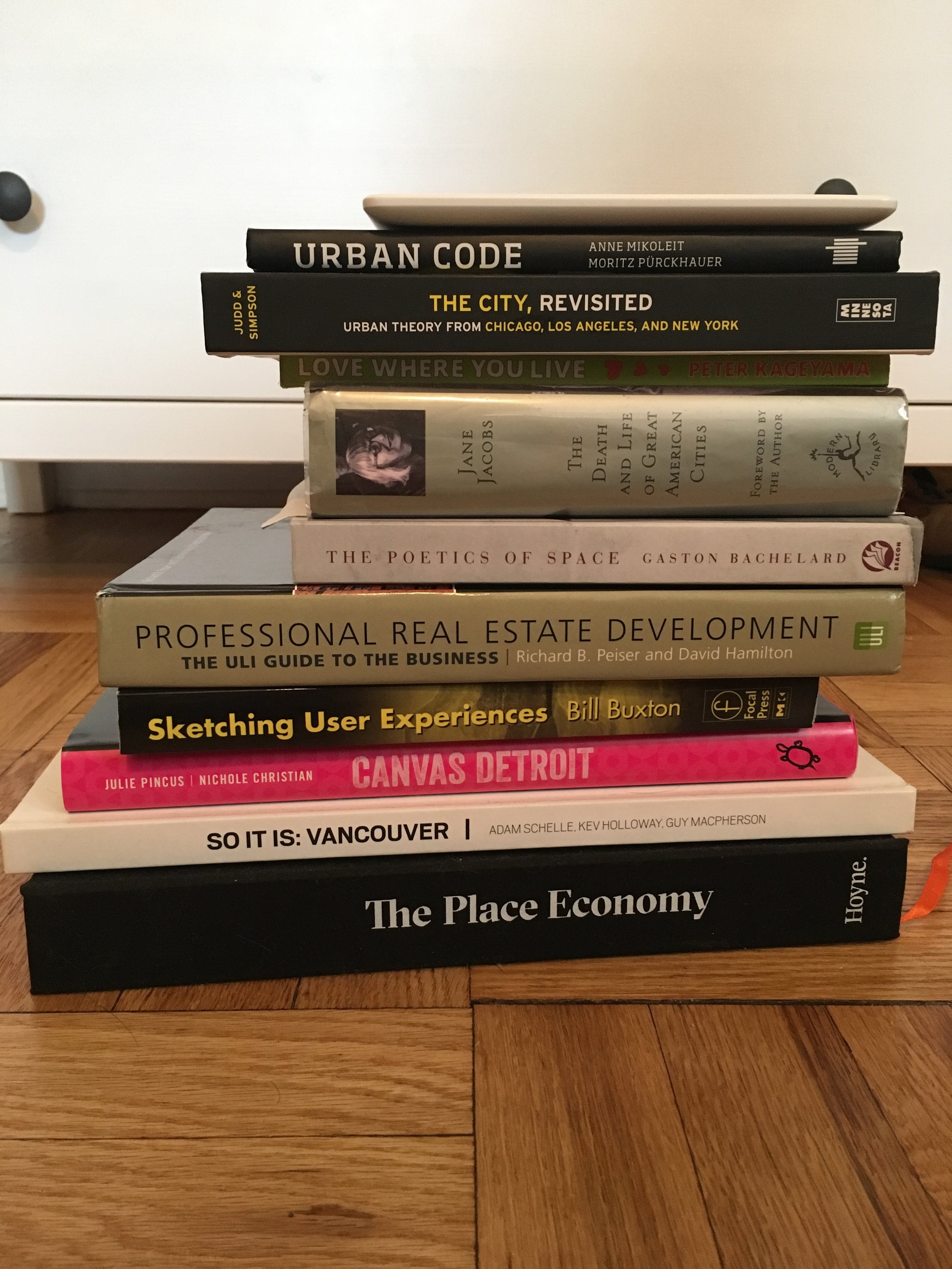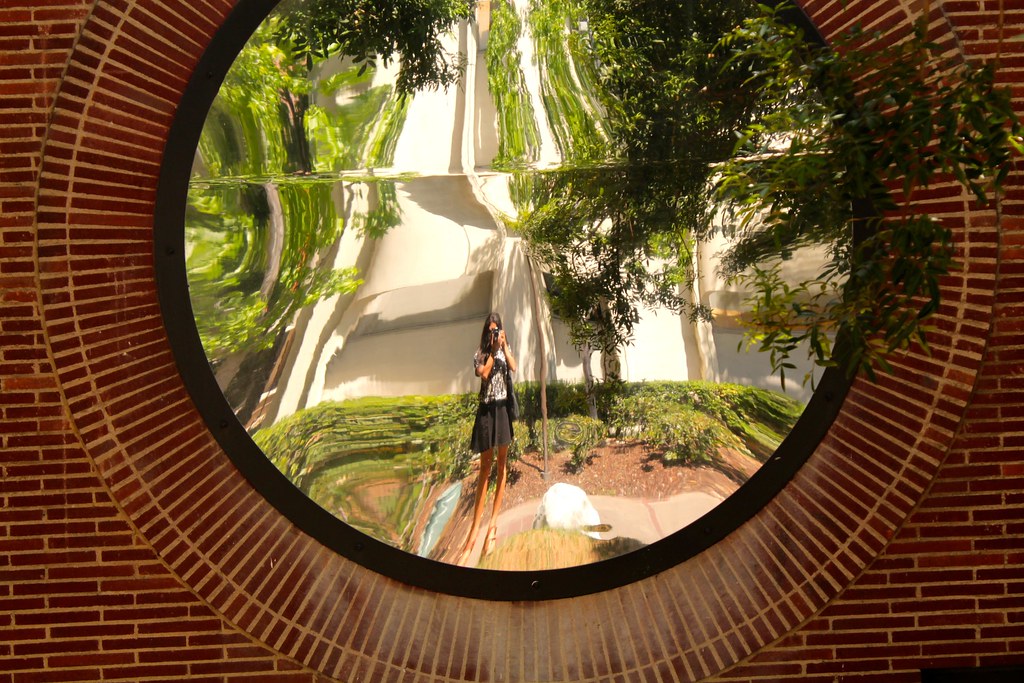I spent most of my early-to mid-20s jealous of all my friends' and acquaintances' book collections and book arrangements that still seam to be a staple of the 'creative' and 'well-designed' home. These friends and acquaintances had these apartments or lofts or rooms in houses filled with books. Books arranged by color. Books stacked on top of each other for decoration. Books on coffee tables. Books on night stands. Books in the kitchen. Books in the bathroom. Books on floating book shelves. Books strewn on the bed. Books -- that I doubt many of them had read. And, I always wondered - what the hell are you going to do with all of those books when you move? Or, how did you move all those books from >>>(LA/Tokyo/Berlin/NY/etc.)?
I love books. And I have always had a ton of them - just not as (simply) decor in my home. I grew up with lots of books. But in my childhood home, books were read and used and often borrowed from the library and given away to friends. They weren't bought for a specific place in the house to make a statement. They were utilitarian. They were dog-eared. They were recycled for art projects.
I've realized my jealousy wasn't of the books themselves, but having enough money to frivolously buy books that made me feel something or that simply looked a certain way so I could put them somewhere - maybe even regardless of whether I actually wanted to read them. I was jealous of a lifestyle where you could not only afford books as props in a dream life, but also have enough money and time to move them when you move on to a new city (and these people always did).
Now, thanks to my corporate job that I just resigned from, I have a new collection of books here in DC. I desperately want to read them, and have certainly started to, but I can't pretend like I don't also love the way they look. Or that I've put them on my coffee table. Or enjoy rearranging them or stacking them in different parts of my apartment. Books can, and often are, bourgeois. And, now that I'm faced with having to sort and pack or get rid of them, I feel like a really silly materialist. As if, I can only prove my creativity or expertise because of my collection of books strategically stacked somewhere.
But I also knowI just really like books. And I am a regular at the library. And I will read the books. Sure, I might ship them to my next home, but I'm going to purge first. This isn't the first time I've moved and gotten rid of everything -- when I moved from San Francisco to Washington, DC. I gave books to my friends and my neighbors and my co-workers and the bookstore a few doors down from my house. It felt good. But I remember thinking - I can't wait until I have a home where I can keep all my books.
During my last move I sent some books to my parent's house, where there's a nice little random collection of books. Books that look a certain way and made me feel something. Books that cost money to make and store and ship. Books that someday will have a home. And yes, some of them are very bourgeois books. But I'm ok with that.



 Here's the truth: the hardest part about moving is not the physical move, but the psychological one. I moved to DC mostly to be closer to my sister. There were other reasons, many other smaller reasons, but the main one was to take advantage of a time when we're both able to hang out and do our thing, together. I had no idea this would be the most challenging part of the move.
Here's the truth: the hardest part about moving is not the physical move, but the psychological one. I moved to DC mostly to be closer to my sister. There were other reasons, many other smaller reasons, but the main one was to take advantage of a time when we're both able to hang out and do our thing, together. I had no idea this would be the most challenging part of the move.  I cannot believe how long it has been since I graduated from USC. Being back on campus for 2014 graduation is absolutely amazing! I am so thankful to work for such an wonderful company that really is changing the face of education. #outcomes #nobackrow
I cannot believe how long it has been since I graduated from USC. Being back on campus for 2014 graduation is absolutely amazing! I am so thankful to work for such an wonderful company that really is changing the face of education. #outcomes #nobackrow